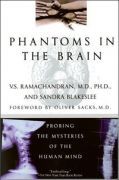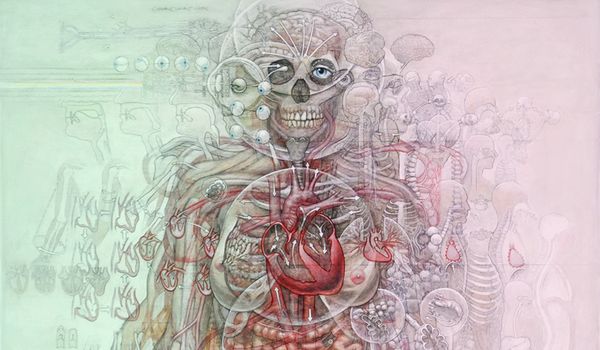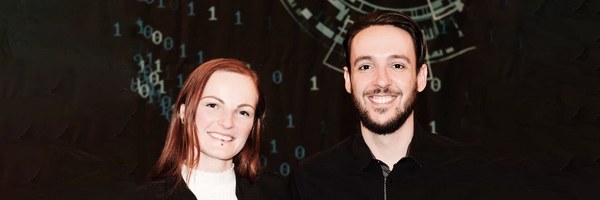Ben • • 8 min read
The Follies of Perception: Why We Should Admit We Know Little
Consciousness & Meditation Philosophy Psychology & Happiness

Back in late September, I was sitting down on a hillside under some trees.
All of a sudden a little worm came into my field of vision — directly in front of my face . For a quick moment I was in total awe of this floating worm.
At first glance I believed the worm was suspended in mid-air. But I quickly realized it was dangling, attached to a thin string. A little silkworm just hanging out :)
I realized this because I had seen these worms before. I had a concept in my mind of worms that hang on string.
This made me reflect: if I did not have such a concept, if I had no idea what a silkworm is, would I realize that the worm is hanging on a string? Or would my mind never have looked for the string at all, instead staying mesmerized by this floating insect?
I imagined myself being a prehistoric human: totally captivated by the illusion. Or maybe I would have thought nothing of it. Without the knowledge that gravity exists, would I have accepted a floating worm as perfectly normal? I really can’t say…
Perception is powerful.
Tiny Buffalo
To emphasize the power of perception, my former college professor told my class a story from a case study he read about people native to a thick jungle leaving their home for the first time.
He said that the natives were being driven through wide open plains. Far out on the horizon were buffalo. The natives asked what these animals were. The researchers driving them explained what buffalo are: large animals that roam the plains.
The natives wouldn’t believe that the buffalo were big.
Because these people had lived all their lives deep in a jungle, they had never seen a horizon before. Everything they had ever seen had been relatively close to them. For this reason, they had no concept of things far away appearing small.
Eventually they approached the buffalo, and were in complete awe of what happened. The animals somehow grew from the size of a fingertip to much bigger than a human!
At first they simply refused to accept that these animals were large. They saw with their own eyes tiny animals moving in the distance. But seeing at a distance was a new experience for them. They had no prior concept of what happens when you see things that are far away.
Perception As A Filter
One way to think of perception is as a filtration system. Our perceptual systems filter out unnecessary information so we focus on what is important.
The mental and physical systems which translate light, sound waves, smells, and other stuff into our first-person sensory experience are set up to give us information we need and leave the unnecessary undetected.
Dolphins and bats use sonar to determine the size, location, and shape of objects. They pick up sound waves as they bounce off of the environment. This requires an incredible range and depth of sound detection.
Dogs, bears, and plenty of other animals have acute senses of smell. They need them to track their prey and stay aware of their predators.
Bees and other pollinator insects see a wider range of color than humans. This is because flowers actually include shades of ultraviolet light, invisible to humans, which correspond to the concentrations of pollen and nectar in the flower. Certain shades of ultraviolet light attract the insects because they signal large concentrations of the insects’ food.
Now, imagine if our human sensory systems picked up everything they already do, plus all the stuff I talked about in the last three paragraphs. We would be totally overwhelmed and unable to function. Forget about gathering food or outrunning a dangerous animal — we would probably be walking into stuff all the time!
It would be encumbering — ineffective for surviving and thriving — to take in all the sensory information possible in a given moment. We couldn’t possibly handle taking in every reflection of every light wave out there. Or every tiny sound wave bouncing off every nearby object. Or all the smells around us.
Our perceptual systems function to limit the information we receive to that which is manageable and useful.
The filter metaphor has a limitation that should be mentioned. A filter takes in all possible material, then sifts through the unwanted and gives us what is wanted. Our perceptual systems don’t take in all the material. They just pick up the desired information.
But I like the metaphor because it calls to our attention the fact that there is A LOT of stuff happening in the physical world that we are not detecting. Right now, in front of your face and mine, there are things going on that stay totally under our radar.
Reflect on this: right now, what percentage of the physical reality around you are you detecting?
A quick google search will tell you that humans see significantly less than 1% of the electromagnetic spectrum. We see about .0035%. What that means is you’re only seeing .0035% of the light around you. So 99.9965% of light, of the possible color that exists, is eluding you.
What else could you be missing?
Confirmation Bias and Rigid Perspectives
Moving from the physical and sensory world to the level of abstraction and beliefs, we humans are often overconfident of our perspectives.
A well-known psychological phenomenon is cognitive confirmation bias.
In a confirmation bias we search for, accept, and analyze evidence in a way which supports our pre-existing beliefs. We favor the evidence confirming the perspective we already hold, and disregard evidence that runs contrary to our preconceptions.
My poor confidence with women used to create a very painful confirmation bias for me. In my mind I would emphasize all the evidence that women weren’t attracted to me and ignore all the evidence that they were interested.
I would never think about how we made eye contact for a long time or how she touched my arm while complimenting me. But I would ruminate for an entire day on how she stopped talking to me for 30 seconds to say hi to one of her male friends. Surely she can’t possibly be interested!
Because I believed that I was not attractive, I only accepted the evidence confirming this — even though it was painful for me.
There are plenty of other examples of confirmation bias. One day I’ll probably do research for an article and only use evidence that supports my view. A hiring manager who dislikes an applicant’s personality may emphasize their shortcomings and disregard all the signs that they are well-qualified for the job.
How often do our preconceptions harm us? How much of our reality is distorted by biases? We can never know until we are proven wrong. And even then we often have trouble admitting it…
Living with Inaccurate Realities
The realities which we experience are never fully accurate. Perception on physical, mental, and emotional levels can never fully encompass all the information and phenomenon actually happening in our world.
Every first-person experience is the result of reality going through the filters of perception. An organism experiences only what is potentially relevant for their survival and success in the environment.
To put it simply, we can never see the full picture.
So what do we do about that? How do we live with that?
Giving up on knowledge is not the answer. Resigning ourselves to the follies of our perception isn’t the answer. The “I can never really know anything, so why try?” attitude is a cop-out.
You have to know some things.
When you pick up food to eat, you know where the food is by seeing it. You know what it tastes like as you chew. You know whether or not it’s healthy by the sensations in your body as you digest it.
Not only do you need to know how to do certain things to survive — you can’t avoid knowing your sensations. Those sensations aren’t the “full picture”, but they’re a part of the picture. Quite importantly, they’re the part of the picture which is most relevant to you.
We’ve got to honor the slices of knowledge that we do have. The fact that we can perceive anything at all is incredible. We need to use our knowledge to do the best we can with our lives.
But we have to acknowledge that our perceptions are limited. We have to acknowledge that we don’t always see accurately.
The Benefits of Admitting Perceptual Limitation
There are some awesome benefits we can experience when we really admit to ourselves that our own perceptions aren’t perfect.
For example, we’ll be less likely to feel guilt or shame if we misread a social situation.
Maybe we’ll think someone is joking when they’re not. Maybe we’ll think someone is attracted to us when they’re not. And we end up acting on these perceptions.
We can recognize that no one will see everything perfectly, and in this instance it was our turn to screw up. It is totally normal to not see things exactly the way they are, and we can move on afterwards.
Another benefit is that we will tend to look deeper into life and into ourselves. If you see that your perspective is limited you will be slower to make assumptions. You will consider with care important questions about yourself and this life.
You may not be so quick to accept all the tenets of the religious doctrine in your culture. You will take time to chew on what is meaningful for you and what you actually believe.
When you have yet another “epiphany” about why you’re still waking up hung-over all the time, you’ll question yourself more. Instead of riding the false high of surface-level motivation, you’ll see the need to take things more seriously.
Both Lao Tzu and Socrates are known for calling attention to the importance of admitting how little we actually know. They understood how wisdom can be born from the humility of acknowledging the limits of our own comprehension.
Humility and Sensing the Infinite Mystery
And that takes us to a really special benefit that we can reap from this form of humility.
When we actually believe that what we’re experiencing isn’t the exact replica of reality, we come to face our own limitations in an awe-inspiring way.
Every once in awhile I’ll experience this feeling — and it’s fucking great.
When I experience this awe, I feel a respect for the mysteries of life. I feel grateful that I get to live in a universe so grand, so intricately built, so mystifying…
I am both humbled and uplifted in these moments. I contemplate how I am at once so small and limited in the encasing of my human perceptions — but at the same time so gifted, blessed, and powerful to have such an advanced mode of experiencing reality.
There is A LOT of reality happening outside of our awareness. But at the same time, being human gives us an incredibly rich way of experiencing the universe.
If you’ve ever heard of the word yūgen, this is how I feel when I reflect on my human perspective and it’s context in the cosmos.
I hope you get to experience this feeling sometime. The sensation of recognizing that we live in a truly vast mystery. The respect for both our little position in the universe and the cosmic oceans that dwarf it.
Your perceptions give you an awesome window into this thing that we exist in. Appreciate them.
But they leave out a lot, and this ground of existence contains many things you’ll never know about.
We’ll do ourselves good by finding humility about what we know and what we don’t. We won’t jump to as many brash assumptions. We’ll reflect more thoroughly on our decisions. And maybe, just maybe, we’ll open the floodgates to a mystical reverence for our universe that transforms our personal relationship with the cosmos.
Further Study:
Phantoms in the Brain: Probing the

Mysteries of the Human Mind by V.S. Ramachandran and Sandra Blakeslee
A deeply insightful exploration of how the human mind constructs the human experience. Essential for anyone who wants to understand why we sense, think, and feel the way we do — and how these sophisticated functions of the mind can trick us!










